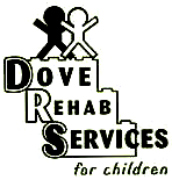The first phase of coordination may be described as motor planning. The first steps of motor planning include: Planning what steps to take Planning what sequence or order in which to organize the steps Using vision or visualization to guide the motor steps taken Coordination requires preparing the body for the first steps, or motor planning the activity. Motor planning also requires following through with
Learn more
Concepts explored in this post: Functional Vision: Integrating vision with motor skills and language Dorsal Stream – integrating vision with motor skills Ventral Stream – integrating vision with language skills Ocular Motility: Coordinating movements of the eyeballs Fixations, Visual Tracking, Visual Pursuits Visual Association: Motor free visual perceptual skills impacting Social skills Visual discrimination (i.e., letters, numbers) Children with Sensory Processing Disorders (SPD) often
Learn more
Eye hand coordination, also known as visual motor integration, refers to the ability to bring movements of the eyes and hands together to complete a task. Eye hand coordination also requires attention and organization since eye movements generally lead the way for planned moves of the body, arms, and hands. Eye hand coordination typically places emphasis upon paired moves of the eyes and the
Learn more
Direct links exist between postural control and fine motor skills due to neuromotor pathways that activate when heavy work is used. The links include attention and control of movement for the muscles that move the eyes (i.e. reading) and those that move the hands (i.e. writing or keyboarding). Postural control is an essential ingredient needed for successful eye hand coordination skills. When the
Learn more
The Visual Component The ability to use vision to guide the sequencing of motor output is a defining point in the development of fine motor competency. Acquisition of this skill allows for use of tools for self care, including utensils as well as grooming aids such as combs for hair care and razors for shaving. A growing child will also need to learn to
Learn more
Visual Motor Integration – the ability to bring visual perceptual abilities and motor control together in order to perform a motor task, is a vital skill needed for social, emotional, and academic independence. Typically, parents and teachers look to the emergence of hand function as a measure of development of this skill. Meanwhile, therapists look to the emergence of other key elements of visual
Learn more
Parents may want to know that there is a developmental sequence for introducing visual motor integration basics to children who have deficits in this area. The sequence begins with having a steady base of support that acts upon a stationary target. (i.e. an infant holding onto a bottle with both hands while sucking). The progression develops so that the child can reach for moving
Learn more
